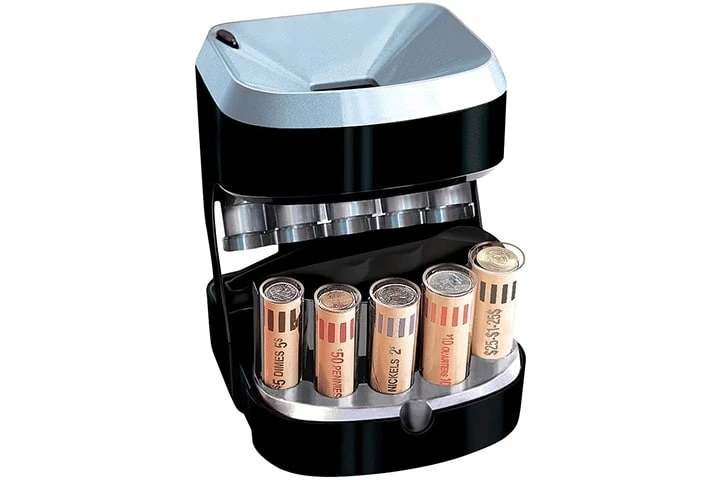Intro: A coin sorter is an invaluable tool for anyone who deals with coins on a regular basis, whether a business or an individual. It quickly sorts coins into their correct denominations and reduces the time spent counting and sorting coins by hand. Not only does a coin sorter save time, it also reduces the risk of errors in counting. In this article, we’ll discuss the types of coin sorters available, their benefits, and the best solutions for different needs.
Types of Coin Sorters:
- Manual Coin Sorters: Manual coin sorters are the simplest models available. They are usually made from plastic and feature a sorting tray and a rotating drum. Coins are placed in the tray and then spun around the drum, which sorts them by size. This type of coin sorter is generally the least expensive option, but it is also the least efficient and can be slow and prone to errors.
- Electric Coin Sorters: Electric coin sorters are more expensive than manual coin sorters, but they are much faster and more accurate. These sorters use a combination of electronic sensors and software to identify the size and denomination of coins. They are usually more accurate than manual coin sorters and can sort coins at a much faster rate.
- Coin Counters: Coin counters are a type of coin sorter that can count coins as well as sort them. They use electronic sensors to identify the size and denomination of coins, and then count them up as they are sorted. Coin counters are more expensive than manual and electric coin sorters, but they are much faster and more accurate.
Benefits of Owning a Coin Sorter:
- Time Savings: Coin sorters can save a lot of time compared to counting and sorting coins by hand. This is especially true for businesses that handle a lot of coins, such as banks, retail stores, and vending machine operators. With a coin sorter, coins can be sorted quickly and accurately, reducing the amount of time required to count and sort coins.
- Accuracy: Coin sorters are much more accurate than counting coins by hand. This is especially true for coin counters, which use electronic sensors to identify the size and denomination of coins. This ensures that coins are accurately sorted and counted, reducing the risk of errors in counting.
- Cost Savings: Coin sorters can also save money. Manual coin sorters are usually the least expensive option, while electric and coin counters are more expensive. However, the cost savings from time and accuracy can be significant, especially for businesses that handle a lot of coins.
Solutions for Different Needs:
- Small Businesses: For small businesses, a manual coin sorter is usually the best option. This type of sorter is generally the least expensive, and it is usually accurate enough for most small business needs. It can also be used to accurately sort coins without the need for a coin counter.
- Banks and Retailers: Banks and retailers usually require more accuracy and speed than a manual coin sorter can provide. For these businesses, an electric or coin counter is usually the best option. These sorters are more accurate and can sort coins at a much faster rate, making them ideal for these types of businesses.
- Vending Machine Operators: Vending machine operators usually require the highest degree of accuracy and speed. For these businesses, a coin counter is usually the best option. These sorters are the most accurate and can count coins quickly and accurately. This ensures that vending machine operators can accurately count and sort coins for their machines.
FAQs
Q. How much does a coin sorter cost?
- The cost of a coin sorter depends on the type and features. Manual coin sorters are the least expensive, while electric and coin counters are more expensive.
Q. How accurate are coin sorters?
- Coin sorters are generally more accurate than counting coins by hand. Manual coin sorters are usually accurate enough for most small businesses, while electric and coin counter sorters are more accurate.
Q. How quickly can a coin sorter sort coins?
- The speed of a coin sorter depends on the type. Manual coin sorters are usually the slowest, while electric and coin counters can sort coins much more quickly.
Q. Are coin sorters easy to use?
- Most coin sorters are easy to use. Manual coin sorters are usually the simplest, while electric and coin counters require a bit more setup and knowledge.
Q. What is the best type of coin sorter for my needs?
- The best type of coin sorter for your needs depends on your requirements. Manual coin sorters are usually the best for small businesses, while electric and coin counters are better for banks and retailers. Vending machine operators usually need the highest degree of accuracy and speed, so a coin counter is usually the best option.



